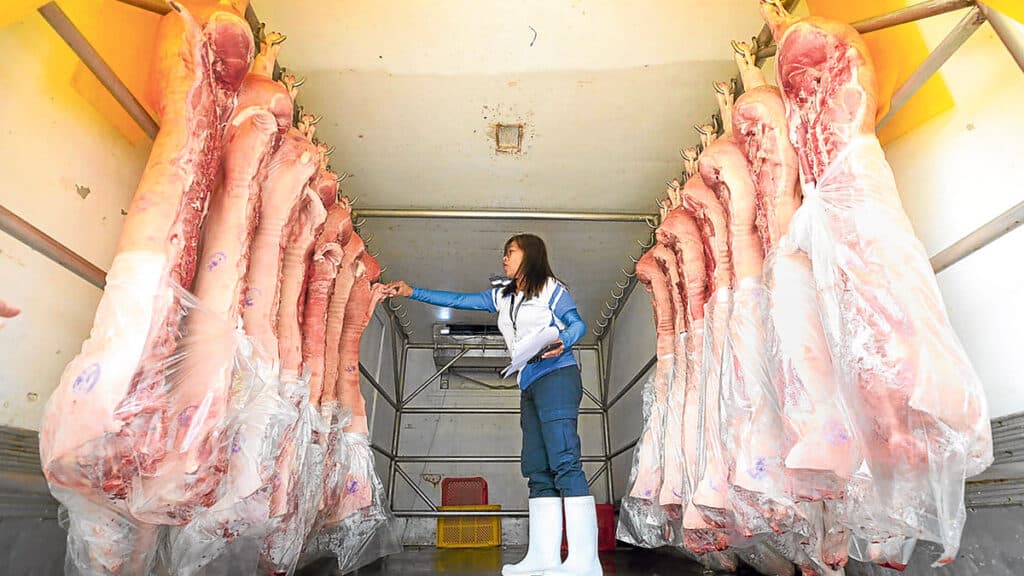
PRECAUTION An officer from the meat inspection office of Marikina City inspects freshly slaughtered carcass inside a delivery van in this Aug. 15 photo. —LYN RILLON
The country’s meat imports surpassed the 1-billion kilogram (kg) mark in September as the African swine fever (ASF) continued to decimate local supply.
The country imported 1.04 billion kg of meat during the nine-month period, based on data from the Bureau of Animal Industry (BAI). The number is 164.33 million kg short of reaching full-year 2023’s volume of 1.2 billion kg.
READ: DA set to vaccinate pigs in ASF-free areas
The end-September figure was also 12.6 percent higher than the 923.16 million kg of imported meat recorded in the same period last year.
“[The increase] is not significant because so many pigs died,” Agriculture Secretary Francisco Tiu Laurel Jr. said in an industry event in San Juan City last week. “It’s only right that imports increased because local pork supply decreased,” he told reporters.
Tiu Laurel said in General Santos City, for instance, only 1.8 million out of 8 million pigs survived because of the ASF outbreak.
Pork imports comprised nearly half of the total with 517.86 million kg, a 12.9-percent increase from last year’s 458.7 million kg. Traders purchased mostly pork cuts and offals.
Chicken remained second with 345.86 million kg, up by 6.4 percent from 324.98 million kg. Most of these were mechanically deboned, or those used in manufacturing hotdogs, patties and sausages.
Beef came next with 144.02 million kg, mostly beef cuts, rising by 35 percent from 106.68 million kg.
The country also purchased imported buffalo, duck, lamb and turkey during the period.
Prices to ‘stabilize’
Brazil is still the leading source of imported meat with 356 million kg, followed by the United States with 154.97 million kg and Spain with 130.64 million kg.
Tiu Laurel said retail prices should “stabilize” as frozen pork supplies have begun arriving.
National Federation of Hog Farmers Inc. chair and president Chester Warren Tan assured consumers of sufficient pork supply this Christmas season as local hog raisers have prepared for the projected increase in demand.
“We make sure in the past two months, three months, that we are prepared for the projected demand for the December season. Rest assured, we have enough supply this coming December,” Tan said. INQ